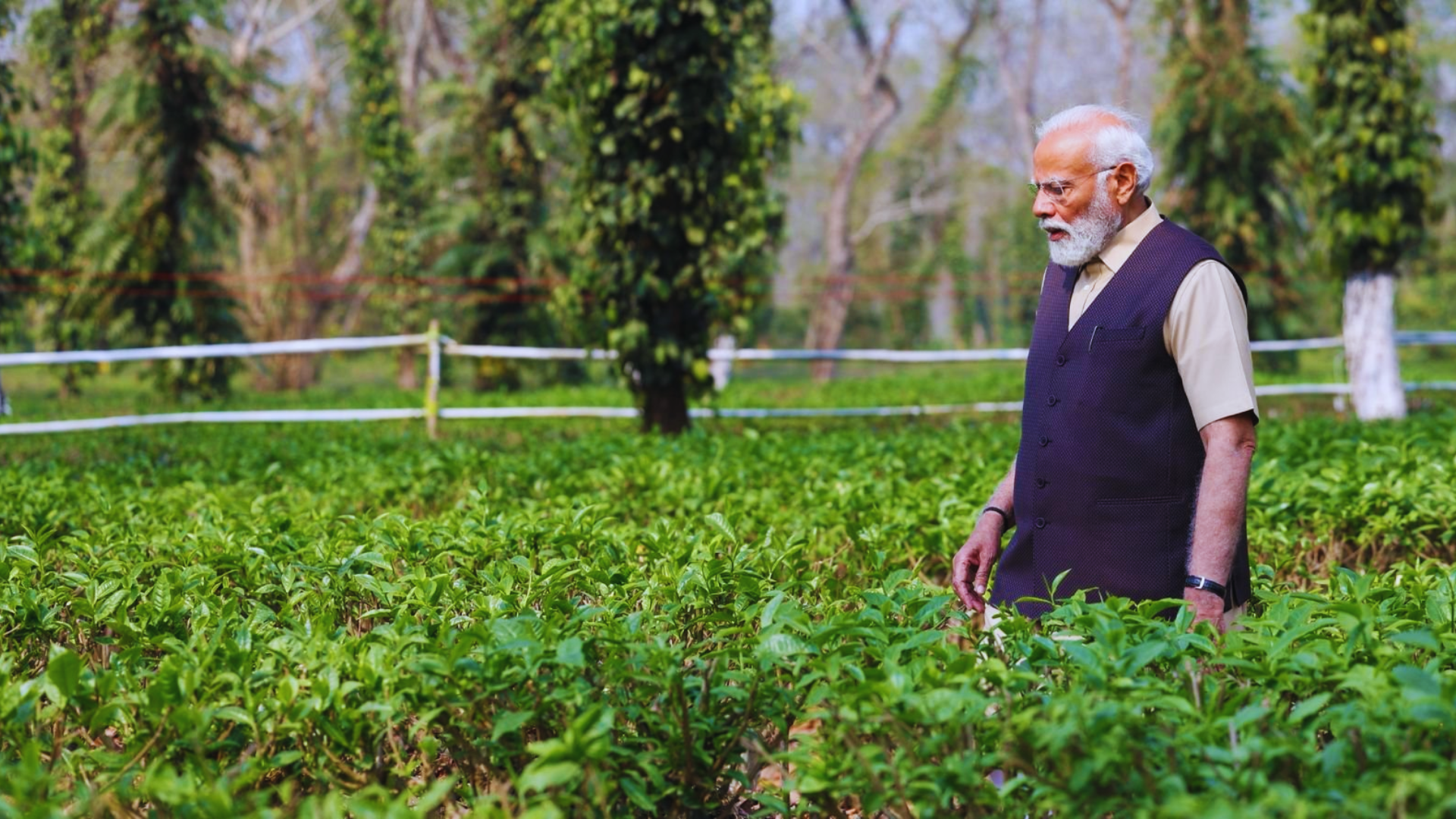During his ongoing two-day visit to Assam, Prime Minister Narendra Modi took a break from his schedule to spend time at a tea estate.
Through his social media platform, he encouraged tourists to explore Assam’s tea gardens when visiting the state. “Assam’s tea gardens are renowned worldwide, and Assam Tea has gained global recognition. I commend the hardworking tea garden community for enhancing Assam’s reputation globally,” read the post on his platform.
অসম উৎকৃষ্ট চাহ বাগিচাৰ বাবে পৰিচিত, আৰু অসমৰ চাহে সমগ্ৰ বিশ্বতে নিজৰ স্থান দখল কৰিছে।
কঠোৰ পৰিশ্ৰম কৰি সমগ্ৰ বিশ্বতে অসমৰ গৌৰৱ বৃদ্ধি কৰা উল্লেখনীয় চাহ বাগিচা সমাজখনক মই প্ৰশংসা কৰিছো।
Advertisement · Scroll to continueলগতে পৰ্যটকসকলকো এই ৰাজ্য ভ্ৰমণৰ সময়ত চাহ বাগিচাসমূহ পৰিদৰ্শন কৰিবলৈ আহ্বান জনাইছো। pic.twitter.com/8y1WOyk2Kk
— Narendra Modi (@narendramodi) March 9, 2024
The tea community in Assam, a significant portion of the state’s population, plays a crucial role in numerous Assembly constituencies. Assam’s verdant tea gardens offer more than just the beverage itself. The state annually produces almost 700 million kg of tea, contributing to approximately half of India’s total tea production.
Tea cultivation in Assam has witnessed a transformative journey, with many small farmers transitioning from paddy cultivation to tea farming. Unemployed youths have also ventured into tea cultivation as a business, some even starting their tea ventures through startups or cultivating it in their backyard.
Staying in tea gardens, playing golf, and driving through tea estates can offer unforgettable experiences. Assam boasts sprawling green tea estates with colonial-era bungalows, many of which feature attached golf courses. Some estates even have airstrips for tourists to arrive and depart in chartered aircraft.
Assam’s tea growers recently celebrated the industry reaching a significant milestone of 200 years. The state’s tea industry, renowned globally for its richly colored and aromatic tea, provides livelihoods to millions, directly or indirectly.
Assam is famous for both Orthodox and CTC (Crush, Tear, Curl) varieties of tea. The journey of tea cultivation in Assam dates back to 1823 when Robert Bruce discovered wild tea plants in the upper Brahmaputra Valley. Subsequently, the government established the first tea garden in 1833 in the erstwhile Lakhimpur district. Today, Assam’s tea industry contributes significantly to the state’s economy, generating annual foreign exchange earnings of approximately Rs 3,000 crore.




















